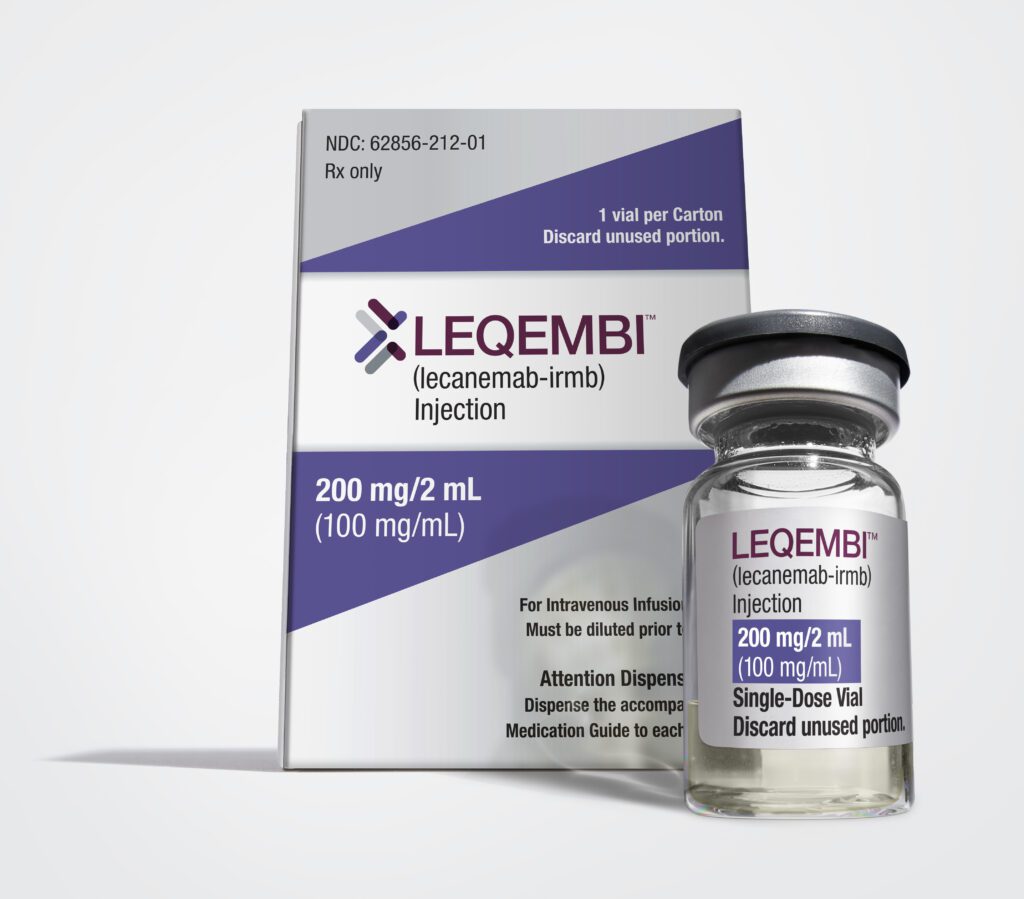The U.S. Food and Drug Administration (FDA) granted traditional approval to the groundbreaking Alzheimer’s drug LEQEMBI, the first in a new class of Alzheimer’s drug to receive such a designation.
The July 5 decision converts the agency’s accelerated approval of the drug, granted in January. The decision sets the stage for more patients to be able to access the drug, though barriers remain.
What is LEQEMBI?
LEQEMBI is an Alzheimer’s treatment developed by Eisai and Biogen. Both companies are members of the Biotechnology Innovation Organization (BIO).
“The drug works by reducing amyloid plaques that form in the brain, a defining pathophysiological feature of the disease,” explained the FDA’s announcement.
Following the January accelerated approval, clinical trials showed LEQEMBI reduced cognitive decline by 27% in early-stage Alzheimer’s patients.
“LEQEMBI’s traditional approval is based on Phase 3 data from Eisai’s large, global Clarity AD clinical trial, in which LEQEMBI met its primary endpoint and all key secondary endpoints with statistically significant results and confirmed the clinical benefit of LEQEMBI,” said the joint statement from Eisai and Biogen. “LEQEMBI treatment reduced clinical decline on CDR-SB by 27% at 18 months compared to placebo.”
“This confirmatory study verified that it is a safe and effective treatment for patients with Alzheimer’s disease,” echoed Teresa Buracchio, Acting Director of the Office of Neuroscience in the FDA’s Center for Drug Evaluation and Research.
LEQEMBI is administered intravenously after specific tests. Now, Eisai is assisting with training for these tests as well as patient access, with the goal of enabling 100,000 Americans to receive LEQEMBI by 2026.
The next steps for LEQEMBI
The Accelerated Approval Program expedites FDA approval for medications that address critical illnesses with no therapies. It allows “accelerated” approval “based on a surrogate endpoint” that can “predict clinical benefit,” explained the FDA.
Importantly, accelerated approval drugs “are approved using the same gold standard for safety and effectiveness as any other medicine,” said BIO Chief Scientific Officer Dr. Cartier Esham in a recent episode of the I am BIO Podcast.
However, as previously reported, Centers for Medicare and Medicaid Services (CMS) decided Medicare would only cover Alzheimer’s drugs in this class if they receive traditional approval and if patients participate in a registry.
Following FDA’s July 5 announcement, CMS announced expanded coverage of the drug. However, the registry requirement remains.
“The CMS-facilitated registry is now available for healthcare professionals to submit required patient data to CMS. Eisai is pleased that Medicare will cover this important therapy for appropriate patients. This will facilitate reimbursement for and access to LEQEMBI across a broad range of healthcare settings in the United States,” said Eisai and Biogen.
The Alzheimer’s Association previously called the registry requirement “an unnecessary and potentially harmful barrier.”
Why LEQEMBI’s traditional approval matters
Regardless, the FDA’s conversion of the drug from accelerated approval to traditional approval is a step in the right direction for patients.
“Today marks a breakthrough in the treatment of Alzheimer’s,” said Biogen CEO Christopher Viehbacher on July 5.
“We are proud that the results of Eisai’s Alzheimer’s disease research over the past 40 years have been recognized and delivered to people living with this disease,” said Eisai CEO Haruo Naito.
“Alzheimer’s disease is a progressive, fatal disease that greatly impacts not only the people living with it, but also their loved ones, care partners, and society. We continue to work to create broad and simple access to LEQEMBI for patients and to support diagnosis and treatment at the early stage of the disease. Eisai will diligently work to educate physicians on the safe and appropriate use of LEQEMBI to maximize its benefit to people living with early AD and their families,” continued Naito.




